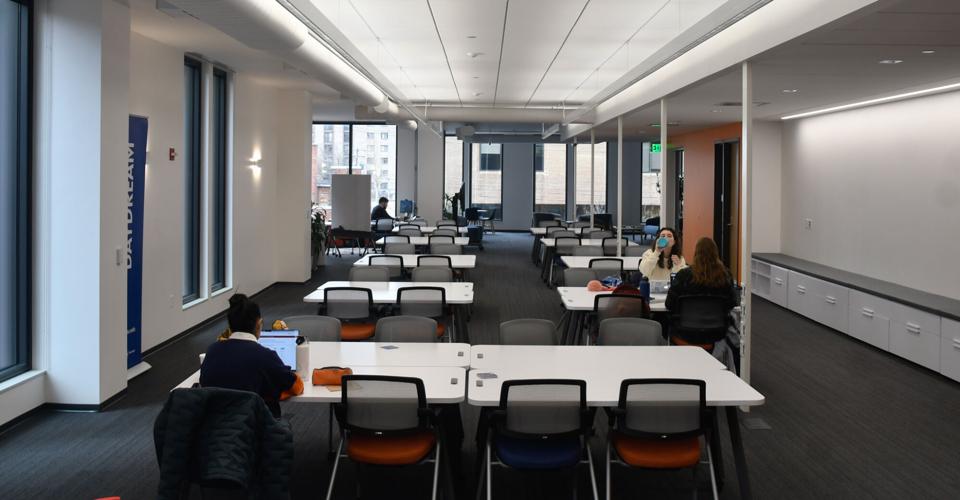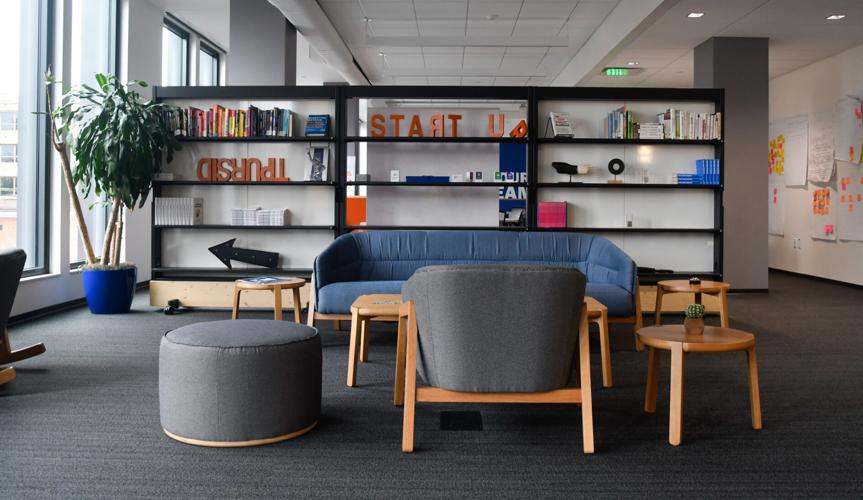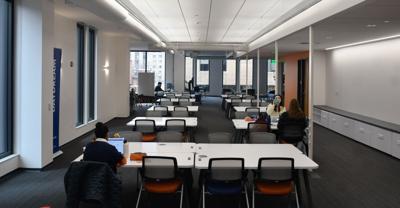Under the supervision of practicing lawyers, students from Penn State Law have the opportunity to participate in pro bono work through the Entrepreneur Assistance Clinic — helping with the legal paperwork necessary for “small, start-up, early-stage” businesses, according to its founder and director, Tom Sharbaugh.
Sharbaugh, a professor of practice at Penn State Law, said the clinic has two main purposes — education and outreach for the university.
“There are students every semester who work in the clinic under the supervision of the lawyers on staff. They get credit for working with real clients,” Sharbaugh said. “We undertook to represent people all across Pennsylvania who wouldn’t otherwise have legal representation with respect to business matters.”
Sharbaugh, who was previously a practicing lawyer with a law firm in Philadelphia, said he noticed a “similar type of clinic” at the University of Pennsylvania’s Carey Law School, except it was “directed solely at high-tech entrepreneurs.”
“When I proposed it to the people at Penn State at the time, they were very receptive to the proposal,” Sharbaugh said. “I had gone to Penn State as an undergrad, and I thought it was a chance to return to Penn State.”
Within the clinic, Sharbaugh said the main type of entrepreneur it works with is the “entrepreneurs by necessity.”
“Those are people who have been laid off or who think they are going to be laid off, and they decide it’s time to start a business,” Sharbaugh said.
Once entrepreneurs are in contact with the clinic, Sharbaugh said students “have almost all of the client contact.”
“The students work in teams of two. The team will then reach out to the client and have a Zoom meeting and discuss what the client asked for,” Sharbaugh said. “Then the students will develop a plan of what they think ought to be done.”
From there, students converse with the lawyers in the clinic, who may slightly “tweak” the plan.

Employees of the Penn State Law Entrepreneur Assistance Clinic work out of the Happy Valley LaunchBox office powered by PNC Bank on Wednesday, March 30, 2022 on 123 South Burrowes.
The students create whatever documents are necessary for what the businesses need, and the service is “all for free” for the clients, according to Sharbaugh.
“There’s a lot of oversight,” Sharbaugh said. “Everything they send out is reviewed by a lawyer.”
Six months ago, the clinic started a program directed toward “underserved entrepreneurs,” Sharbaugh said.
“There are many regulatory frameworks that apply to the various grants and loans and investment programs that are available for those underserved categories,” Sharbaugh said. “We found that there weren’t many lawyers who were familiar with this and were available — particularly for free — to help these underserved entrepreneurs, so we launched this program, and it has been a tremendous success.”
Chase Youngman said he tried to start his own business when he was younger, so he “knew firsthand” what types of challenges entrepreneurs can face.
“I thought it was really cool that I could get both hands-on experience actually helping people and also be in an environment where people are checking my work, so I can get hands-on experience without ruining someone’s life,” Youngman (graduate-law) said. “But I could also give back to people.”
Youngman emphasized that the people the clinic helps are small business owners and are often local to Pennsylvania.
“We’re a pro bono clinic, so these are like your neighbors,” Youngman said. “I want to continue to help people who are trying to get their chance.”
Laila Moukhtar said she got involved in the clinic to figure out what she wanted to do after graduating from Penn State Law.
“I kind of wanted to go into corporate law, but I wasn’t entirely sure if I wanted to do big business or small, and then it turned out I kind of like the small,” Moukhtar (graduate-law) said.
Moukhtar, like Sharbaugh and Youngman, said she believes in the importance of in-person experiences in the learning process.
“It’s been a lot more conducive to learning than the more lecture-based classes,” Moukhtar said. “You’re learning on the job, which is what you’re going to be doing after law school anyway, so it’s good to get a head start on it.”
MORE NEWS COVERAGE
With Penn State University Park Undergraduate Association's Election Day quickly approaching…







